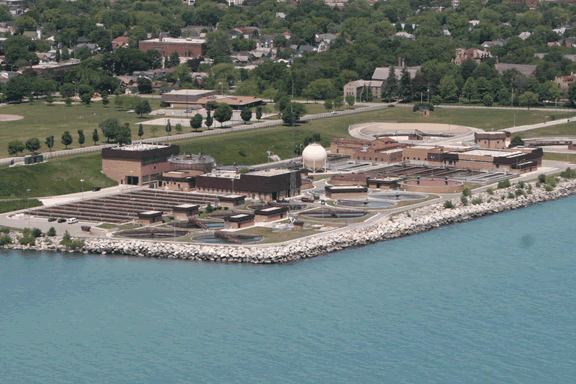FOG Program
Homeowners Guide Reducing Fats, Oils and Grease in our sewers
Spread the word
You can help educate others about FOG by sharing this information with friends and neighbors. The Utility is working hard to improve Racine’s water quality by informing residents and businesses of ways to reduce water pollution, sewer backups and improve the quality of life for those who live and work here.
For more information on managing fats, oils and grease, or for emergency sewer backup response
FAQ
Fats, oils and grease (FOG) are found in food scraps, meat fats, lard, oil, margarine, butter, sauces and dairy products. FOG is commonly associated with fried goods and baked goods prepared at home or in a good establishment. When FOG is not disposed of properly, it can clog your homes plumbing as well as city sewers.
When washed down a sink or drain, FOG builds up over time and can cause a blockage in your drains, pipes and in sanitary sewers. Blockages lead to increased costs to maintain private plumbing, our sewers, the wastewater treatment plants and public and private property.
- Neighborhood: Plumbing and sewer backups can result in property damage and various code violations. These backups can also create hazardous and unhealthy conditions.
- Environment: Clogged sewers can cause raw sewage overflows, which release untreated sewage into our rivers and streams. Sewer overflows make waterways unsafe for recreation, and they threaten the fish and other aquatic life that live in our rivers and streams.
- Quality of Life: Sewer backups and clogs attract insects and vermin, resulting in undesirable and unhealthy living conditions.
- Pour cooking fat or grease into a small container. Once it cools or solidifies, place it in the garbage.
- Don’t dispose of FOG into food waste disposers, sinks, toilets, or floor drains.
- Dispose of greasy solid waste in the trash.
- “Dry wipe” pots, pans and other dishes before washing to minimize the amount of FOG and solids washed down the drain.
- Do not put used cooking oil, oil-based paints, motor oil, solvents or other chemicals down sewer lines or storm drains. Large quantities of home cooking oil from fryers should be poured back into the original oil containers. Dispose of these items at Racine Household Hazardous Waste Events. For collection event dates, the location, and what waste materials to bring, visit:HHW
- Educate others on the damage that FOG can cause.
Section 98 of the Municipal Code, Section 151 – General sewer use requirements states:
No user shall contribute or cause to be contributed the following substances: any wastewater containing fats, wax, grease or oils whether emulsified or not…or containing substances which may solidify or become viscous at temperatures between 32 degrees Fahrenheit and 150 degrees Fahrenheit.
FOG is any fats, oils and grease associated with food preparation, food service, and kitchen clean-up.
It becomes a problem for the community when it is poured down the drain and builds up in sewer pipes, pumps and equipment causing back-ups and overflows that are hazardous to health, homes, businesses, and the environment.
It can become a problem for your establishment if you are found to be the cause of a sanitary sewer overflow because of FOG or improper maintenance of a grease trap or grease interceptor located in your establishment.
You may be responsible for cleanup costs and property damage.
But there are ways to decrease the amount of FOG going down the drain and help to keep our community clean.
- Have interceptors and traps designed and installed by a licensed plumber to handle the amount of grease expected from your facility.
- Clean and service the interceptors and traps on a regular basis.
- Do not add chemicals and additives that claim to dissolve grease.
- Follow the “Best Management Practices” (BMPs) provided to you by the Racine Wastewater Utility.
- Keep good up-to-date records of all cleanings, maintenance, and service and have it available during inspections.
- Contact Racine Wastewater Utility with any further questions.
FOG Program For Food Establishments
Grease Handling, Storage, and Disposal
- Do not pour cooking oil or grease into sinks, garbage disposals, toilets, floor drains, parking lots, storm drains, or the street.
- Install an oil and grease trap and/or interceptor to help reduce the amount of grease entering the city sewer system.
- Service oil and grease separators frequently based on the manufacturers recommendations and use.
- Check dumpsters and compactors regularly for leaking to prevent discharge to storm drains, or attraction of rodents and pests.
- Practice dry cleanup using a scraper to remove food waste from dishes and cooking surfaces before cleaning them with water. Dispose of this waste in the trash.
- Dispose or recycle cooking oil and grease through a licensed waste grease hauler or recycler.



